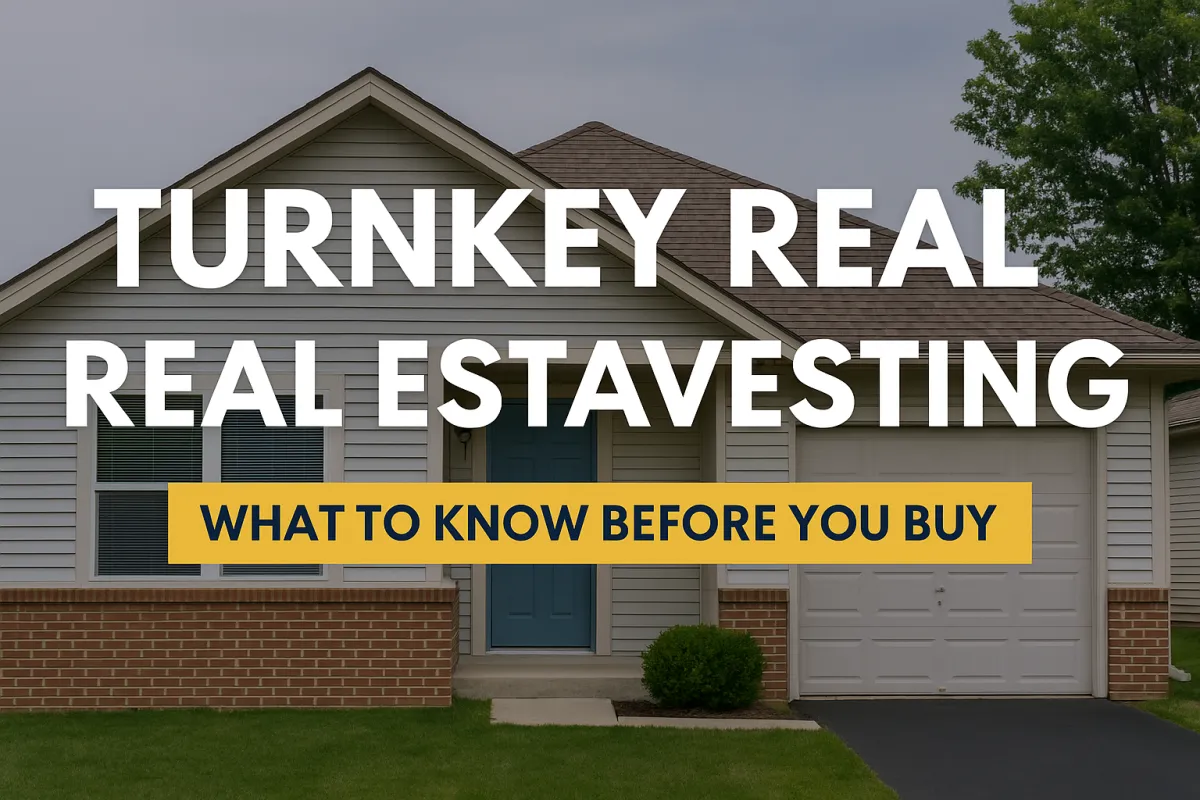
The Profit Playbook: What to Know Before Investing in Turnkey Real Estate
The Profit Playbook: What to Know Before Investing in Turnkey Real Estate
Introduction
Turnkey real estate investing sounds like a dream: buy a fully renovated, rent-ready property with tenants in place and let someone else manage it. No toilets, no contractors, no headaches—just mailbox money, right?
Well… not so fast.
At The Profit Playbook, we love passive income—but only when it's backed by real due diligence. Turnkey rentals can be powerful tools for building wealth, but only if you know what you're buying and who you're buying it from. Here’s what every investor should consider before diving in.
1. Understand What “Turnkey” Really Means
“Turnkey” is a marketing term, not a legal one. It could mean:
Fully rehabbed with new systems and appliances
Lightly updated but tenant-occupied
Managed by an outside property management company
Or all (or none) of the above
Your job: Get exact specs on the rehab, upgrades, and current condition—don’t assume anything.
2. Vet the Turnkey Provider Like a Business Partner
You’re not just buying a property—you’re buying a process.
Research their portfolio
Ask for references from previous investors
Request a full breakdown of renovation timelines and scopes
Confirm licenses, insurance, and management structure
A great property with a poor operator is still a poor investment.
3. Location Still Matters—A Lot
Even a beautifully renovated property can underperform in a weak location.
Check local job growth, school ratings, crime stats, and rent trends
Walk or virtually tour the area
Ask: Would you live or invest there long-term?
Turnkey doesn’t mean hands-off due diligence.
4. Inspect the Property Yourself (or Hire Someone Who Will)
Never skip a third-party inspection. Even "newly renovated" properties can hide issues behind fresh paint.
HVAC, plumbing, foundation, roof—inspect everything
Review permits for rehab work
Use the report to negotiate repairs or price
Peace of mind now avoids pain later.
5. Understand the Financials—Not Just the Marketing
Turnkey sellers love to advertise “high returns” and “positive cash flow”—but dig deeper.
Scrutinize rent rolls, leases, and occupancy history
Check property taxes, insurance, and maintenance reserves
Factor in vacancy rates, management fees, and capital expenditures
If the math doesn’t work without the rose-colored glasses, move on.
6. Know the Property Management Plan
Who’s managing the property after you close?
Is it in-house or a third party?
Are they licensed, responsive, and experienced in that market?
What’s their fee structure, and how do they handle repairs and tenant issues?
Strong property management is the backbone of any turnkey investment.
7. Plan for the Long Game
Turnkey rentals are rarely get-rich-quick vehicles. They’re better suited for:
Building long-term cash flow
Creating tax advantages
Diversifying into new markets
Make sure your goals align with the nature of the investment.
Conclusion
Turnkey investing can be a fantastic way to generate passive income and expand your portfolio—but only when approached with the same rigor as any other real estate deal. Scrutinize the provider, inspect the asset, and run the numbers like a pro. The more homework you do now, the more passive your income truly becomes.

